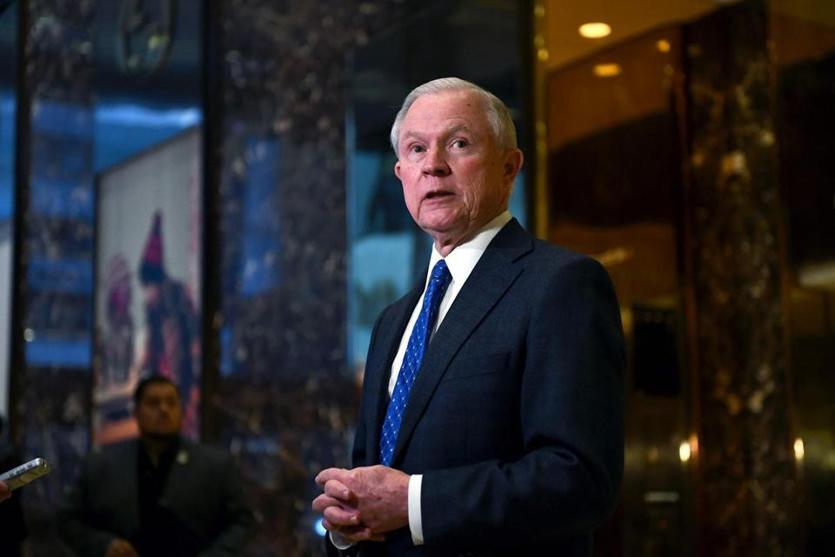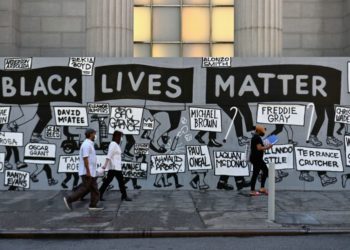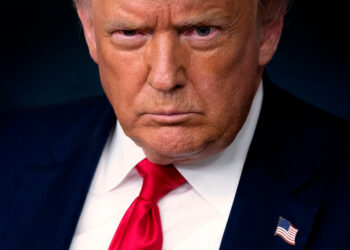It has been over a week since President Donald J. Trump fired his Attorney General Jeff Sessions and the popular anger has not abated. Liberals and progressives have gone to the streets and social media to condemn the decision as an attempt to subvert the investigation into whether the Trump campaign colluded with Russians. Trump’s choice of successor Matthew Whitaker has only added to these fears given his reputation for being an unquestioning supporter of Trump and his administration, even in the face of potential widespread evidence of illegality and collusion.
Of course, Sessions is quite a strange cause celebre for those on the left. He has a history of racism, voter suppression, and anti-drug, pro prisons that has made him a hero to the far-right and an anathema to progressives. His sudden elevation to Trump enemy number 1 and liberal champion reveals just how unpredictable and bizarre U.S. politics has become.
Yet it is also completely understandable given the present circumstances. The firing of Sessions represents how far Trump is willing to go to subvert democracy when it suits his desires. Sessions may not be the perfect martyr for preserving democracy, however, the anger his dismissal has raised reveals just how committed many remain for preserving basic democratic norms and accountability.
Running Government Like Business
These actions reveal the depth to which Trump is radically transforming U.S. democracy. He is less a traditional dictator in the making and more a reflection of the total corporatization of our popular politics. He runs the government as if it was one of his businesses and he was the CEO – granting himself the power to fire whoever he wants, whenever he wants.

This reflects a fundamental threat that goes far beyond Trump. It reflects the idolization of the business executive at a time when political and economic democracy has been steadily in decline. The public sector and unions are, until recently, bywords for inefficiency and special interests. The CEO, by contrast, is revered for being decisive, productive, and visionary. These ideas continue to prevail even as their actual economic impact has been widely debunked and their ethical misdoings are almost weekly headline news.
The adoration of corporate leaders from Elon Musk to Bill Gates to Richard Branson represents a profound cultural loss of faith in democracy. The looking to a strong corporate leader “to get things done” has produced CEO politicians – starting with our first “MBA President” George W. Bush all the way to billionaire icon Donald Trump. An underlying basis for Trump’s support, mingling comfortably with economic anxiety and racial resentment, is an admiration of his “business smarts” and ability to “win” against other nations as if they were simply corporate rivals.
Dangers of CEO Politics
The discharging of Sessions represents the full-scale danger of this CEO politics in practice. Sessions, a former ally, was let go for not ending the Mueller inquiry and the belief that his successor Whitaker, a long time critic of the special counsel, will do so in his place.
CEOs, whether they are ruling corporations or a country, reject accountability almost as a matter of principle. Their only barometer of success is whether they provide a good return to their shareholders, an ethos witnessed in Trump’s constant trumpeting of economic growth and Wall Street gains above all else.
The GDP Rate (4.2%) is higher than the Unemployment Rate (3.9%) for the first time in over 100 years!
— Donald J. Trump (@realDonaldTrump) September 10, 2018
The popular demand that the Mueller investigation was not summarily terminated, is a broadside desire to protest government by executive fiat. The inquiry itself revolves around fears – whether genuine or not – that the country’s democracy is being undermined by external foreign interference. However, the support for Sessions shows that the threat is also internal, as Trump and his allies are seeking to undermine democratic institutions and values from the inside out.
The worry, though, is that this will paradoxically reinforce the worst aspects of U.S. democracy. The popular call to “go to the streets” for Sessions has been met with skepticism by many on the left. It reveals a disturbing trend in which resistance against Trump has meant an embrace of a corporate-friendly political status quo and once legitimately criticized agencies such as the CIA and the FBI.
Such so-called “Trump washing” would alleviate the symptom of our executive rule but not its causes. Doing so entails placing the support of Sessions into a wider ideological and political movement for completely reinvigorating our democracy.
A fresh wave of progressive politicians at the national and local levels offer hope that this is still possible. The question, though, is whether we can do more than merely fire our CEO in chief and end our faith in the executive rule.
Disclaimer: The views and opinions expressed here are those of the author and do not necessarily reflect the editorial position of The Globe Post.






















